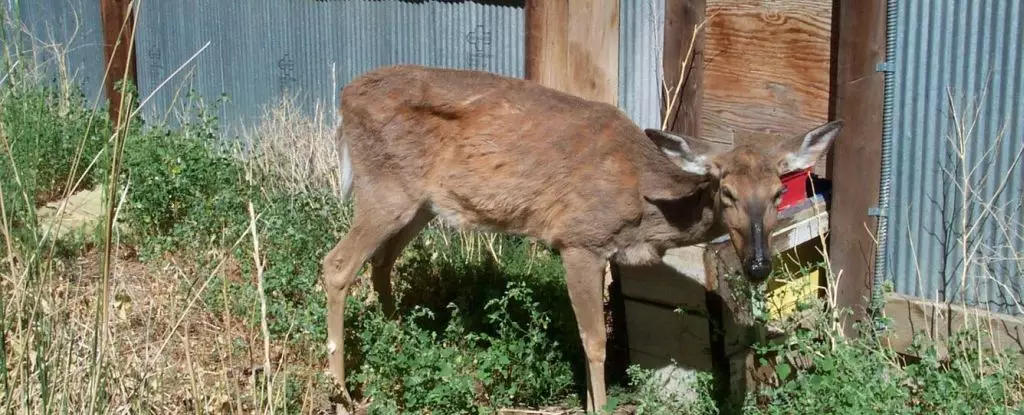A recent medical case report has raised concerns about the transmission of chronic wasting disease, a deadly prion disease commonly known as “zombie deer” disease, from deer to humans. This report highlights the tragic deaths of two hunters who consumed venison from deer infected with chronic wasting disease, leading to severe symptoms and ultimately fatal outcomes. The implications of this zoonotic transmission are alarming, as prion diseases are incurable and pose a significant threat to public health.
Prion diseases, such as Creutzfeldt-Jakob disease (CJD) in humans, are characterized by the misfolding of proteins in the brain, resulting in a cascade of dysfunctional tissue that leads to symptoms resembling rapid-onset dementia. These misfolded proteins have the ability to spread and infect neighboring proteins, creating a cycle of destruction that cannot be halted or reversed. The insidious nature of prion diseases makes them challenging to diagnose and treat, as they do not elicit an immune response in the body.
Chronic wasting disease primarily affects animals like deer, elk, and moose, with transmission occurring through bodily fluids such as blood and saliva. This disease has been shown to easily infect animals in the wild, as well as those in laboratory settings. Despite the potential risks associated with chronic wasting disease, human consumption of infected animals continues to pose a significant threat to public health. The rapid increase in the consumption of infected animals raises concerns about the potential for zoonotic transmission and its implications for human health.
The case report detailing the deaths of two hunters emphasizes the need for further investigation into the risks associated with consuming chronic wasting disease-infected deer. While it remains unclear whether the two men succumbed to the disease, the potential for cross-species prion transmission is a cause for concern. With chronic wasting disease prevalent in wild deer populations across North America, the threat of zoonotic transmission to humans cannot be ignored.
The emergence of chronic wasting disease in humans serves as a stark reminder of the dangers posed by prion diseases and the need for vigilance in monitoring and preventing their spread. The potential for zoonotic transmission from animals to humans underscores the importance of further research and public awareness to mitigate the risks associated with consuming infected animals. As the medical community continues to investigate the consequences of chronic wasting disease on human health, it is imperative that precautionary measures are taken to protect individuals from this potentially lethal threat.


Leave a Reply